Nicole Fabricant says Bolivia’s new president Luis Arce faces a neo-fascistic right while negotiating a new relationship with the country’s social movements that fragmented under his mentor, Evo Morales. Fabricant is a Bolivia researcher and associate professor of anthropology at the University of Maryland Towson.
Greg Wilpert
Welcome to theAnalysis, I’m Greg Wilpert. It’s been a little over 100 days now since the new president of Bolivia, Luis Arce, has assumed office. As he took over following a harrowing year during which the far-right president, Jeanine Anez years had managed to oust longtime leftist President Evo Morales from office. In November 2019 with the help of Bolivia’s military, its police, and the Organization of American States. Luis Arce, who was finance minister under Evo Morales, managed to win last October’s presidential election with 55 percent of the vote.
Since then, he has had to deal with a complicated situation, fending off Bolivia’s far-right, as well as coping with the Covid pandemic and a severe economic crisis. Just how well has Arce managed to do this and what has brought Bolivia to where it is now? Joining me to discuss these issues is Nicole Fabricant. Nicole is an associate professor of anthropology at the University of Maryland in Towson and a frequent contributor on Bolivia to NACLA, Jacobin, and other publications.
Also, she’s the author of the book Mobilizing Bolivia’s Displaced: Indigenous Politics and the Struggle over Land. Thanks for being here today. Nicole.
Nicole Fabricant
Thanks, Gregory. It’s great to be in conversation with you.
Greg Wilpert
So let’s start with what’s perhaps the more urgent concern in Bolivia at the moment – the pandemic. Bolivia was hit very hard, just as most of Latin America. Give us a brief idea as to what Arce has had to deal with when he took office and what he’s done since then in regard to managing the pandemic.
Nicole Fabricant
Sure. So the pandemic, as you said, had hit Bolivia pretty hard in the months of March, April, May, June, straight through the summer, and Jeanine Anez’s government really in so many ways failed to deal with this public health crisis, but also the twinning economic crisis. So we had these interlocking crises mounting at the same time. So Arce came in with and really his election, an incredible landslide was a real shock to a lot of us from the global north, expecting that it would be a much closer, given the polarization of the country, outcome.
So I think there was a lot of just shock and excitement and celebration that there was this new iteration of MAS, and he came in right away trying to figure out what the best solutions to the Covid-19 crisis would be, while at the same time not locking down economic means of everyday production and life because that had come to a stall during the crisis. So right away, they were solidifying the first major Covid-19 vaccine deal.
I think 20 percent of the population was the goal initially for Arce, and so there were a lot of these first Sputnik-V doses that arrived in late January. We’re still seeing spikes, though, all over Santa Cruz right now, which is the agro-industrial capital in the region, where I’ve worked pretty closely. So that seems to be the hotbed and the epicenter right now of the Covid-19 crisis.
Greg Wilpert
And recently health care workers actually started a strike. What’s that all about?
Nicole Fabricant
Yeah, so I’m trying to get a better sense too not being on the ground in Bolivia. I’m just reading from afar, however, there has been a lot of resistance to the health care system under Moralez, fears of a more socialized system, fears of Cuban doctors, and taking jobs away from Bolivian doctors, and a lot of that was going on when I was physically in Bolivia around 2008 to 2010 or so, and a lot of that was just middle-class white doctors that never went to indigenous communities, did not treat the working classes or the poor, resisting this broader trope of a communist invasion.
I don’t think the more recent health care strikes were linked in any way, although I’m trying to understand this resurgence of a second round of MAS and whether or not there are fears around what universal or socialized medicine could look like in terms of obviously they have an incredibly privatized health care system similar to the United States, but to me it seemed like a lot of it was opposition or just concern around Covid-19, and people, especially essential workers under an enormous amount of pressure, feeling like there were these impositions around strict lockdowns and it was preventing, care around the clock, so I don’t know exactly who is behind some of the health care demonstrations, but it seems like the majority of it was happening in Santa Cruz and it was geared towards the regional government.
The health care workers just seem like they’re fed up and a lot of it has to do just with the same kinds of issues I think that nurses and some of the frontline health care workers are dealing with. Lack of resources, underpaid around the clock, trying to get people protected. So I don’t necessarily see the link between the broader rightist movement and some of the health care worker strikes. I just think under the pandemic, there’s an enormous amount of stress and pressure for health care workers right now.
Greg Wilpert
Just as everywhere else Bolivia, of course, has had its economy suffer quite a bit because of the pandemic. Now, how has this affected the economy, and to what extent and how has Arce tried to address the economic crisis?
Nicole Fabricant
Yeah, those are great questions. I think the big issue with Arce taking office was, one, really rethinking what the MAS program would look like. Right. So there were severe limitations under Moralez of what MAS represented, and I think there’s been extensive commentary on that. He depended upon the extractive industry essentially.
In order to redistribute some portion of gas money, of other big kinds of nonrenewable fossil fuel industries, and then that became the means to do some of the redistributive work and the social programing, but there has been grave criticism around the extent to which that extractive model wreaks havoc right upon the environment, particularly gas in the Chaco region and some of the lowland areas, the extent to which indigenous communal rights are no longer enshrined by the constitution because he passed the new constitution and there were all kinds of ways in which indigenous people for the first time really felt like they were part of this state, however, lots of fractures occurred along the way.
So despite the growth under Morales with the commodity boom and really feeling as though he was able to renegotiate gas deals, it was far from a total nationalization. I just want to be clear, I think the administration came forward with really radical plans around land redistribution, which never occurred, scaled back very quickly. I was actually in the region during that period where the right-wing landowners were resisting, and very quickly it became only state-owned lands that were redistributed and never managed to fully nationalize. So just a portion of the revenue was then redistributed. So Arce is coming in during the Covid-19 crisis, but also during a moment where they’re experiencing economic crisis and possibly not the same moment, a commodity boom.
So what will this mean for Bolivia is the big question right. He is an economist. So he comes in and he did say from the start, there’s no way we’re going to be able to do this without austerity politics. So we have already heard him talking about and it’s interesting because while he has reneged on things like the IMF loan and we can talk about that, he also is saying, the only way to do this is going to be through austerity and probably continuing with the same extractive model, there’s all sorts of now ideas about lithium, which is pretty common, I would say, discursive point for folks in the north and in the south, what will these new lithium horizons look like?
Morales started to industrialize lithium extraction, and this obviously is going to reap all sorts of profits, right. Possibly for Bolivia, but also there are concerns around the social, the environmental, and even the small scale destruction of community for folks who live around some of those areas that will turn into mining zones.
So I think it’s up in the air still what exactly his economic policy, but already there’s certainly probably going to be all kinds of deals as well with the agro-industrial elites, which is another big and booming business in Santa Cruz linked to Brazil. So continuation of probably large-scale soy production monocultures, which also comes with deforestation and exacerbates some of the everyday environmental and climactic concerns. So he’s in a very difficult predicament.
Greg Wilpert
Right, and you mentioned the IMF loan. Arce returned it to the IMF the three hundred forty million dollars recently. That actually was received by or requested by Jeanine Anez, the previous president. So why is Arce returning that already?
Nicole Fabricant
Yeah, I think it’s really interesting and being celebrated, obviously, by the left internationally, so I think Anez came in as the interim president in the wake of this coup, U.S.-backed coup, and right away as an interim president, everyone was in shock that she was moving to privatize industries, taking out loans, assuming a space of power that had not rightly been given to her. So I think there was a lot of shock and ripple just around the kinds of economic decisions and choices she was making. I think Arce did it in part as a symbolic right, but I think in part it’s also a political-economic strategy to say, look, we know that IMF loans come with strings attached to it.
Right. We know that the three hundred and forty million dollar loan is essentially going to tie us into debt and dependency with the United States and a broader imperial force, and I think he just wanted to do it to basically be able to say Bolivia under MAS will remain sovereign, or to whatever extent. I’m very critical of the public discourses, but this is an action, right?
Returning that money is much more than a discourse. I think we saw a lot of this under Morales, this disjunct between a public face discourse of equality, redistribution, dignified, sovereign, free, and then the praksis of extractive industries or the praksis of pitting indigenous communities against one another. So I think this truly is a kind of new beginning for MAS, and it’s an opportunity for Arce to really do things differently. To not just say Bolivia will be sovereign and we are majority indigenous nation, but to actually begin to follow through on certain kinds of promises. So I see it as both symbolic like we will break from Anez and the coup, but we also are beginning to pave out a new path forward for Bolivia.
Greg Wilpert
Yeah, now after this one-year coup government, which basically ran from November 2019 to November 2020, the far-right managed to not only overthrow Evo Morales, but as you mentioned, to actually implement all kinds of elements of its program, even though Anez was supposed to be an interim president. Now Arce has, as a result, I would say, it seems, has had to deal with basically an emboldened right, which continues to claim that there was fraud in the November 2020 election.
Now, how has Arce actually managed to deal with or managed this far-Right? And how dangerous is it or does it remain for his ability to govern?
Nicole Fabricant
Yeah, I think you’re absolutely right. It was interesting being in the United States and watching Bolivia, our elections and Bolivia and this back and forth between an incredibly emboldened Right in the United States and the same kinds of tactics and attempts to say that there was fraud in our own elections and fears, fully so, of Left thinkers, intellectuals and organizers around like could we see some kind of coup in the United States?
So I do think that this is a Right in Bolivia that is to be feared for many reasons. I did a lot of work when I was there studying the Right and trying to trace, because I think it’s very important for Left thinkers to understand, like, how the Right organizes strategically and what are the transnational connections. So they have arms and legs and tentacles that extend way beyond Bolivia to Brazil, and what I found when I was digging around was even money flowing from Heritage Fund and some of the big U.S. Right think tanks. So there’s certainly a U.S. obviously Brazil, southern cone, Argentina, and Bolivia Right.
And there are intellectual spaces for the Right. Like I tried to penetrate some of those spaces to understand, like what their ideological base was and where it stemmed from, and actually in Bolivia, it absolutely comes from Nazi Germany. It was a lot of families that came to Santa Cruz during that particular period in time, and it’s been around for a very long time. So I think it’s been fomenting over the years. We are seeing certainly new ebbs and flows of the Right, but I must say that since the 50s, really, and 60s, the Unión Juvenil Cruceñista which is the paramilitary arm of the Civic Committee and they’re armed and they are ideologically reading some of the same kinds of things that young Nazis read, essentially.
And that’s scary. That is very scary, and they’re connected to the Civic Committee, which is the governing body in Santa Cruz, and so you have all these agribusiness elites and gas interests that are the public face of the Right, which is the economic side, and then you have the brute arm of violence, which is the paramilitary side.
So I don’t want to undermine what is possible, and I’ve seen it. I’ve seen the violence. I’ve seen the demarcation of territory. It’s incredibly anti-indigenous. The ideology is about white supremacy, essentially like a form of whiteness that is tied directly to European blood. So the ways in which they defend territory is through beating up indigenous people, threatening indigenous people, displacing indigenous people in Santa Cruz. Some of my indigenous landless organizer friends would not even traverse the center of the city for fears of these young kids beating them. So Santa Cruz racially, socioeconomically is incredibly divided, and I think Arce is well aware of what he was coming in to.
I think Evo Morales was too to a certain extent. I think some of Morales’s shortfalls were that he began to create political allegiances with some of these agribusiness elites who are the public face, the economic side, and that weakened his ability to essentially hold strong on some of the more radical reforms. Arce is coming in knowing he came in out of a violent coup.
Knowing that the Right has grown beyond Santa Cruz. So we have these right-wing groups now in Cochabamba that are pretty actively involved in these motorcycle gang-type things. We have a Right, obviously, in La Paz, and it’s a complicated Right because it’s not just the face of the Camba, it’s also sometimes middle-class Pasteños? So that’s the climate in which Arce came to power, and he very much realizes that this could undermine potentially. It’s an unstable grounds in which he stands upon.
So I don’t think he’s willing to compromise right away. I haven’t seen the same sort of negotiations and people entering into his administration yet. Still, there’s lots of time for that to happen and to occur, but I think Santa Cruz, again, is this world unto itself and maybe Cochabamba, where there are opposition movements growing, people are continuing to claim fraud. A lot of it is performative. Just politics, these explosive demonstrations, but that does too undermine.
It’s a polarized country. So to what extent does he hold the same economic and political power that the regional elites do? It’s the same scenario Morales came into in 2007 and 2008. Which is that it’s incredibly hard, I think, to be in a position where you’re ruling for some and others are saying you’re not our leader, we will align with the regionalists.
Greg Wilpert
But I think it’s also important the point that you’re making about the connections even to Nazi Germany is very important because people forget, I think, just how extreme some elements of that right are just downright basically neo-Nazi, fascistic elements. I think that’s important to keep in mind, but I want to turn actually, or did you want to add something to this?
Nicole Fabricant
I was just going to say that they actually, I have photographed swastikas of this Right. So, yes, the symbolism, the ideology, the iconography, and the ways in which they’re training folks is deeply seated in a neo- fascistic vision, and we must hold that present because I think it’s very easy to think, oh, it’s about regionalism. It’s about economics. It’s about owning natural resources. The right has been very savvy in Bolivia in convincing people that it’s about a sense of regional/national identity as separate from La Paz, but they’ve maneuvered these discourses and very close to the surface of that is fascism.
Greg Wilpert
Hmm. No, the other factor that Arce will have to deal with, of course, is the social movements, the progressive elements of Bolivian society for a long time, well, actually, in the beginning of the Morales government, as you pointed out in some of your articles, they were tied very closely to Morales, but then there was some fragmentation crept in. So now how do you see this relationship between Arce and the social movement and how it might evolve going forward? What are the early indications so far?
Nicole Fabricant
Yeah, I really hope and I think many of us on the left in the northern spaces of our hemisphere are really hoping that he is able to do things differently. So some of the fractions and this won’t cover all of them because it’s very complicated. It would probably be a whole course on the MAS first round, but essentially what folks have written about is the ways in which MAS has co-opted social movement. So lots of movements right away were given a seat of power inside the state and that demobilized many radical movements. The movement I worked with, the landless peasant movement right away was put in the seat of power, but yet seizing lands became illegal under Morales.
So there were these really interesting ways in which he gave people power, but also deemphasized the more radical wing of those movements. So that occurred, and then there are lots of ways in which movements were pitted against one another.
So one big break with some of the lowland movements was the TIPNIS struggle, and I’ve written about this, but this was a massive highway that Morales was supporting which lowland indigenous movements were really opposed to, and written into the Constitution was that no new development project could occur without consultation by and for indigenous people that might be affected or impacted, and so he breached and broke that because he did not consult before signing on to this large scale, massive highway that was going to be built, and it created an enormous amount of friction, feeling like MAS was not governing for lowland indigenous peoples. There were marches from the lowlands to the highlands.
Morales actually used the arm of the state and violence to quell some of the resistance, which personally I think is incredibly problematic for someone who is defined as like a social movement state.
If you are a state of social movements, you don’t use violence to quell people who are protesting peacefully. Especially when they feel the impact will be directly affecting their children, their grandchildren who live on these lands.
So I think that broke up a lot of the pacts, right, that had existed between the highlands and the lowlands in terms of indigenous rights and sovereignty around land, and many felt from that moment forward, and this is where the right also co-opted many of the indigenous lowlanders into their we will do it better. We will. It’s just this political pawn, like playing each other off of one another. So you have that, and then you also have the failure essentially of Morales to really create a cadre within the MAS regime.
So there was no leadership development. There was no participatory democracy, really. If you are a social movement state, then decisions are made collectively. You figure out how to do this in a participatory fashion, but there was a lot of protagonism and egocentrism, and so all of that was a huge downfall from social movements. Looking at what the Morales administration had become and feeling as though this was not what they voted it. This was not the vision that they necessarily had.
So I think, Arce is coming into it knowing that all these fractures exist, knowing full well that many movements were co-opted, were placed right in the seat of power, but not given necessarily the structural supports necessary to make the kinds of changes, and so far, I think that’s going to be his greatest challenge is like how to bring some of these movements together, how to create a much more holistic vision right across race and ethnic divides and territorial divides.
What is the political future that Arce sees for MAS in this second round? And how will he actually work alongside with, and even make decisions that might be informed by the grassroots? That’s the real challenge for this new generation of Left leaders then I’m hoping they do it differently. I’m hoping they can shed the egotistical, protagonism, and the Machista Calveista politics and really see that there could be a vision based upon what some of the grassroots and social movements are demanding, that they could embolden, and push forward. So it’s yet to be seen, but I think some good signs are that he is meeting with social movements.
He’s incredibly at least he seems like he is not allowing right now Morales to be part of his administration, which I think personally is a pretty good sign that we’re going to split from that generation and try to do it differently. So from what I’ve seen, he’s really struggling right now to figure out what some of these rifts are and how he begins to mend these deep wounds.
Greg Wilpert
Well, actually, just one last point. The last point that you made begs the question of what will be Morales’s role in the future of Bolivia if he’s not going to be participating in the government, which is what of course, what his opponents and also Arce opponents were always claiming that he was going tobe the lead figure or something like that, but that’s clearly not the case. What role do you think he will be playing?
It’s really interesting. I’ve thought a lot about this question recently because we have seen Morales back. Right. So he fled during the coup and he was living for a long period of time in Argentina protected, and then once Arce won there was a lot coming from Morales, internationally, like Tweets, social media, just congratulating Arce, really excited about this next iteration of MAS, returns to Bolivia,. Maybe a month after the inauguration, and then he has been very much sort of celebrated by particular movements and folks who have continued to support him.
So you see him very publicly as a figure that is now even almost a martyr revered by certain communities.
I don’t want to say that. Bolivia is incredibly polarized. Certain folks feel very differently about Morales, his presence right now, and then he did get Covid. Right. So he was in all these negotiations and sort of political spaces with social movements, and then he contracted Covid because it was pretty obvious he was not wearing a mask in any of the photos I ever saw Morales, and he battled that for like two weeks, and now I think he’s on the mend.
Arce has said he will not have a formal place in his administration, however, I find it hard to believe that he’s not an advisor, and I think that’s what’s going on. Right, is perhaps there are these back channels. They’re very strategic around not having Morales in the seat of power and not a public face of MAS through this next generation, but I do think he still has these deep connections to the political party and to social movements, and so obviously, I’m sure there’s backstage negotiations going on.
The question is what is Morales going to do, right? What’s the next phase of Morales’s life? I don’t know. Does he go back to the Chapare? I’m not sure.
Does he begin to think of a new political career for himself? It’s hard to say at this point, but I guess time will tell how much he will be embedded in this new generation of MAS. As far as I could see, Arce really wants a clean break as a public facing. He’s going to make the decisions. He’s going to put this new administration together, and I think probably in order to mend some of these wounds, that’s a good, good sign.
So we’ll see where Morales goes. I know he also has plans for all sorts of economic deals.
So he might just be industrializing, Coca production. I don’t know, he might be back in the Chapare with some business deals that he started while he was in the seat of power. So we’ll see what happens to Morales, but it is an interesting time in Bolivia right now, and I feel like the Left can learn so many lessons, if we’re open, if we’re willing to learn and this is the hard thing. In all honesty oftentimes there’s a very dichotomous view of Bolivia. It’s like either you supported Morales or you didn’t, and people don’t want to get into the nuance, particularly people who haven’t lived for long periods of time in Bolivia. If you have you understand the nuance and the complexity and you’re willing to lean into those tensions, but I think it’s a failure of the left to not lean into those tensions unless we truly look at these past 14 years as an experiment.
Morales did do incredible things for the country. There were tremendous economic benefits, growth, indigenous rights, women’s rights, however, there were detriments, and we need to look closely and seriously at some of that, and where have we failed to acknowledge it? Right. Where have we not mapped out a much more radical agenda?
How do we learn from that? Do it differently and create a much more participatory left? A state that actually is in constant conversation with movements, not one that co-ops and utilizes movements.
How can we begin to create a cadre and leadership that would live on from generation to generation unless we really struggle with that I just feel like we’re going to continue to make these same kinds of mistakes, and I would hate to see that happen again in Bolivia. My Jacobin article was about Bolivia being the hope, this radical hope, even despite all odds, we see MAS surging again, and that says something right about this historic political economic conjuncture and what Bolivians, I think, hold on to as a grave hope for some kinds of real substantive and radical changes.
Greg Wilpert
Hmm. Okay well, I think this is an excellent point to conclude on.
Nicole Fabricant
Yeah.
Greg Wilpert
And I hope we come back again sometime soon to continue the conversation with TheAnalysis, actually, of what the Left can learn from what happened in Bolivia, but anyway, thanks so much, Nicole, for having joined me today.
Nicole Fabricant
Thank you, Gregory. It was great talking to you, and I really look forward to hearing from some of the viewers and thinking about possibilities for collaborations in the future. So best of luck. Thanks, Gregory.
Greg Wilpert
So I was speaking to Nicole Fabricant, associate professor of anthropology at the University of Maryland in Towson, and thank you to our listeners and viewers for tuning in to The Analysis. Please don’t forget to support our work by heading to theAnalysis.news website to make a donation.

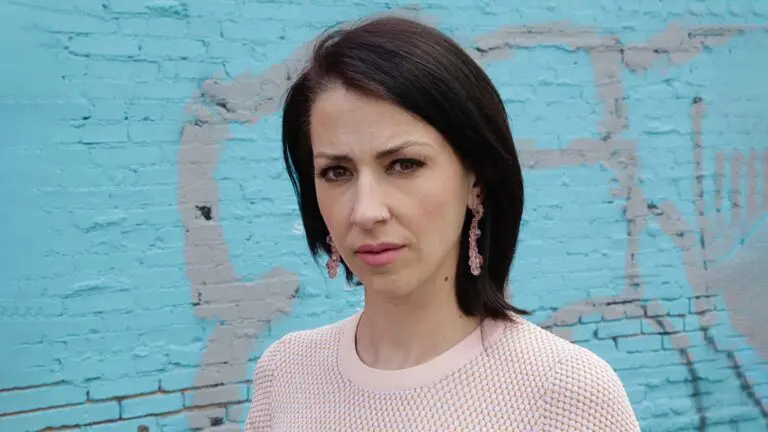

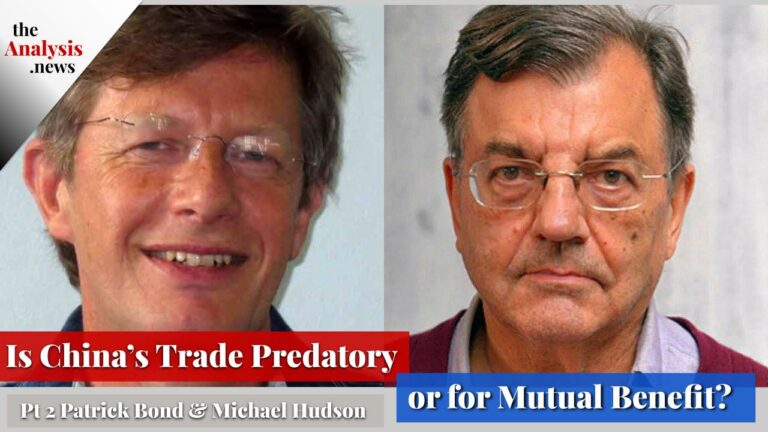
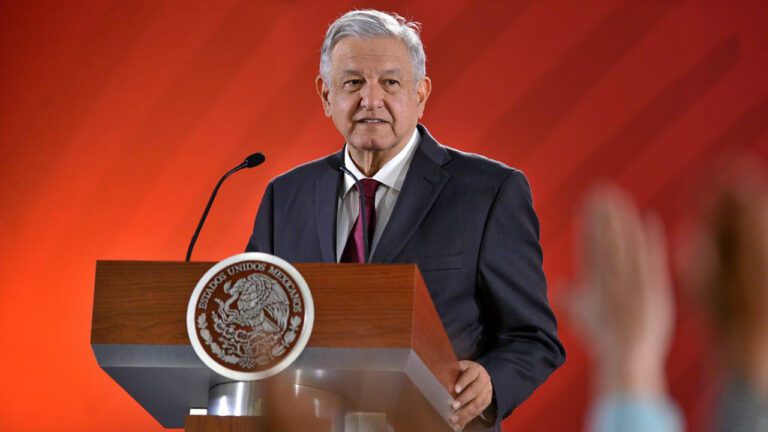
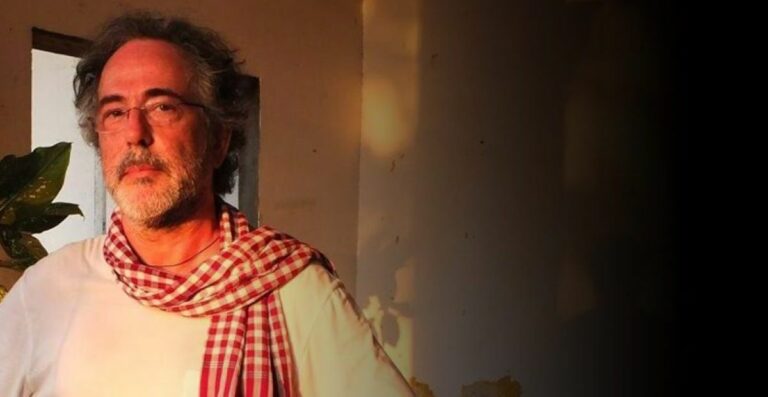
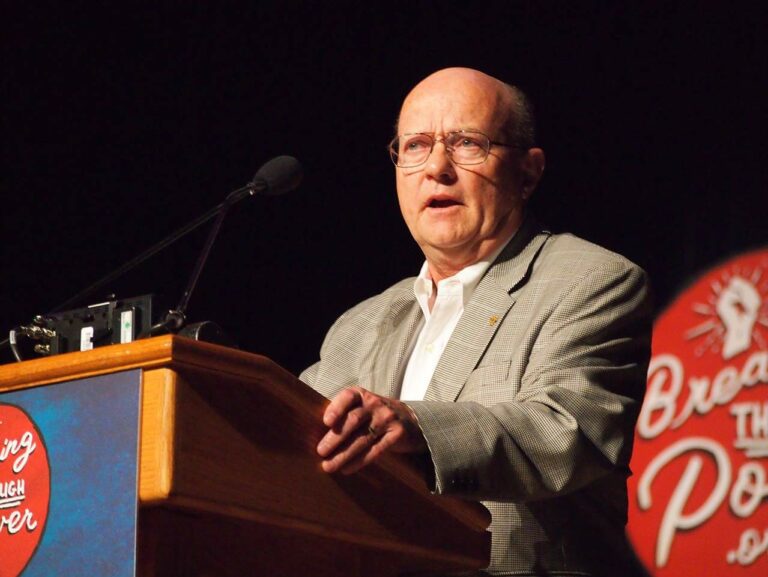
I wouldn’t hold out any hope for Arce, or any politician anywhere, walking the walk, if history is any guide, but I do appreciate the “nuance” provided here, rather than the sort of mindless cheerleading for any “leftist” gummint that so often passes for anti imperialism in these here United States.
That does no one any good, especially the people of those countries.
On another note, the transcript is pretty stinky. For all my problems with “Democracy Now!”, theirs are excellent, and I have to wonder why that isn’t the case universally.
If history is any guide, there is a lot of hope for Arce walking the walk. Morales did, why not him? And there are enough walk-walking politicians – increasingly winning elections – even here to form a rational basis for hope, though of course there are more elsewhere.
What could be more hopeful than the speedy resurgence of the pink tide? Never happened before in all the decades of US imperialism. This is something new.
Civility, objectivity and uniform standards are sometimes disparaged as cheerleading. But better mindless cheerleading of leftist gummints than mindless cheerleading of disguised State Department propaganda. That is a far bigger, increasing problem on the “left”. Only a small proportion is from plants and provocateurs. Most comes from an arrogant – and ever more antiquated – viewpoint of Western superiority.